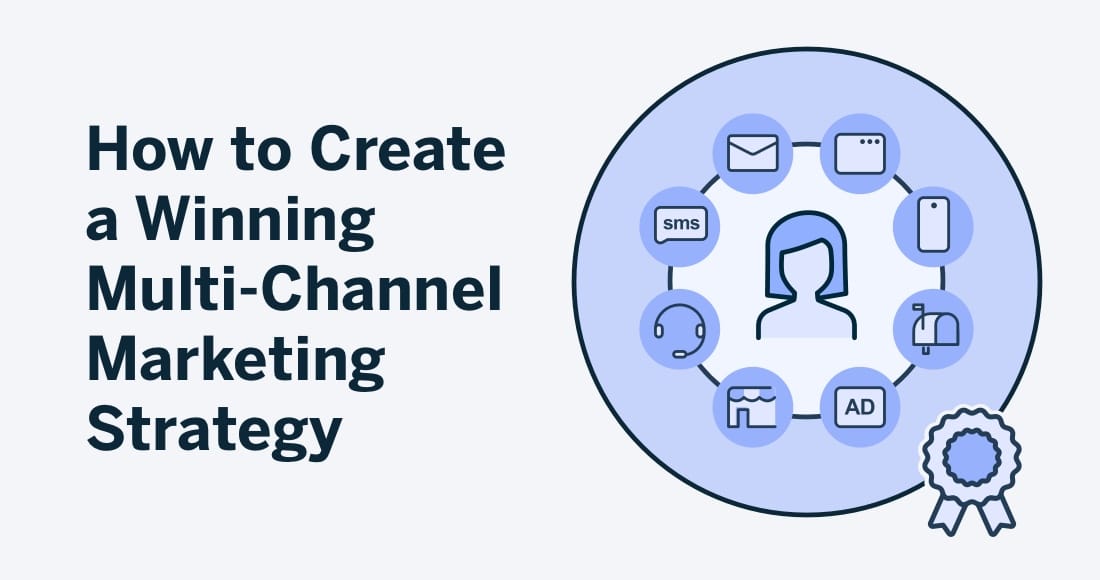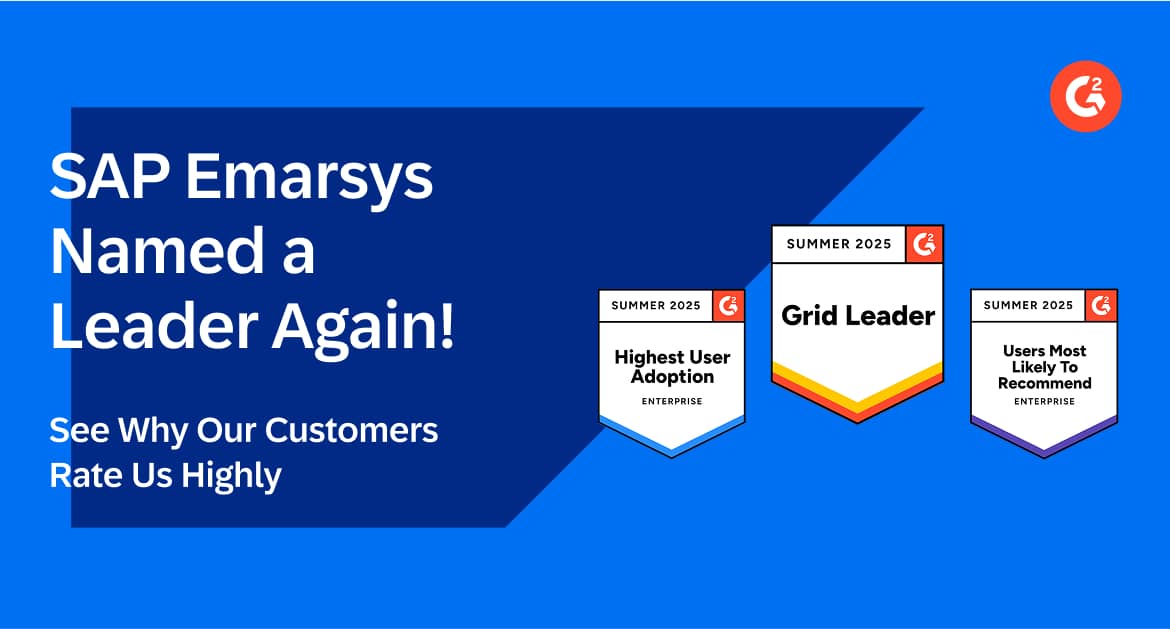Creating and implementing a multichannel marketing strategy can increase the likelihood of your content being seen, by reaching customers where they pay the most attention and show the most engagement, whether through email, web, social, or ads.
This impactful sales approach provides customers a fully integrated shopping experience and, as marketing experts are fully aware, that can lead to positive brand image and higher retention rates. Whether the customer is interacting with a brand on social media, shopping on their mobile device, or simply browsing in a brick-and-mortar store, their experience should be consistent and seamless.
Creating a working multi-channel marketing strategy requires some creativity, but is by no means impossible. Here are 4 tips to help marketers create a winning multi-channel marketing strategy.
What Is Multi-Channel Marketing and Why Is It Important?
Multi-channel marketing is a strategy in which businesses use multiple channels to reach their target audience rather than relying on a single channel.
In a world where your target audience jumps from email to app to web in a matter of clicks, being present across a variety of channels is an effective way to stay visible, build trust, and increase customer loyalty. By adopting a multi-channel approach, your business can engage audiences with content on their preferred channels, helping to increase your brand reach, build more relationships, and drive conversions.
Benefits of Multi-channel Strategies
For brands willing to invest in developing a presence across key marketing channels, multi-channel marketing has a broad range of valuable benefits to offer.
1. Reach new audiences
In our brave new digital world, your customers don’t spend time in just one place. Whether it’s online to offline, mobile to web, or app to email, 98% of them will switch devices and channels at least once a day — and if you’re not there on the right channel to meet them with engaging content, you’re missing out on a wealth of opportunity.
With a multi-channel marketing strategy, you ensure that your brand is present across all major marketing channels. This helps you expand your reach to new, untapped audiences, while also doubling down on touchpoints with current audience members and customers.
2. Tap into the benefits of different channels
Each marketing channel comes with its unique set of advantages and disadvantages. Email has potential for high ROI when used correctly, but its reach is limited to the size of your subscriber base. Paid social, on the other hand, has virtually unlimited potential reach, but Cost Per Acquisition (CPA) can quickly eat away at profit margins.
By adopting a multi-channel approach, you diversify your marketing campaigns, helping you access the advantages of each channel while mitigating the disadvantages that you might otherwise encounter.
3. Drive more conversions
Studies show that on average, it takes 8 touchpoints with a brand before a customer is ready to convert. If you’re only present on a small handful of channels, there’s a risk that your customers simply aren’t getting enough exposure to your brand to commit to a purchase.
This is where multi-channel marketing shows its true value. By being present across multiple channels like email, social media, and web, you hit key touchpoints in the buyer journey, keeping your brand top of mind and driving sales.
4 Steps to a Winning Multi-Channel Marketing Strategy
When done right, multi-channel marketing can deliver incredible value to businesses of all sizes. Let’s dig into the four key steps you need to take to realize its full benefits and drive tangible results.
1. Understand and Focus on the Customer
If you want to best serve your customer, you need to know who they are first. By building an understanding of your customers’ wants, needs, motivations, and key drivers, you’ll be able to create more meaningful content that matches their interests more closely.
Keeping your marketing strategy focused on the customer helps to ensure a positive brand experience, regardless of the platform used. Nothing tarnishes a brand’s reputation faster than sending out blanket communications that make the customers on the receiving end feel like names in a database. Customers respond far better to brands who put in the effort to create a personal connection with their customers. By focusing on the wants and needs of customers, marketers can develop more relevant messaging, recommendations, and sales strategies for their customer base.
The most effective multi-channel marketing strategies ensure customers receive that same positive experience and messaging consistently across each and every channel — which means brands should not send the same generic marketing messages across all mediums. Audience segmentation is a crucial step to making sure the right message is delivered to the right person at the right time, and on the right channel, for the biggest impact.
Overall, the most successful multi-channel marketing strategies combine highly personalized messaging across email, text messages, web, and social media, into one seamlessly cohesive marketing campaign.
2. Leverage Marketing Automation
Many marketing experts might think, “there aren’t enough hours in the day to manage multiple audience messages, across multiple channels, and still have time to be strategic.”
And they would be right.
That’s because managing a multi-channel marketing strategy manually can take a lot of heavy lifting, and when time is such a precious commodity for marketing teams, achieving the consistency needed to realize results can be a tall task.
The solution to this, and the keystone of the most successful multi-channel marketing strategies, is automation. By using a marketing automation tool, businesses can quickly tackle otherwise time-consuming tasks and give back to their marketers the bandwidth they need to focus on strategy or to create valuable content.
What’s more, many marketing teams today turn to technology like omnichannel marketing automation platforms that allow them to manage and automate all campaign aspects across multiple channels and platforms at critical points throughout the consumer lifecycle — using one single solution. With this tech, marketers can also schedule multiple communications across each channel, allowing for the segmentation required to deliver exceptional personalization at scale.
By relieving teams of the manual labor required for this level of execution, marketing automation solutions can mean freeing up time to focus on big picture strategies.
3. Always Use the Data
Data is the powerhouse of any successful multichannel marketing strategy, but its true value lies in how it’s used.
By collecting customer, sales, and product data and forming unified user profiles, marketers get the 360-degree view of their customer that enables the true personalization needed to enrich their larger strategy. On top of this, with all this data in hand, marketers can quickly identify what’s working and what isn’t.
- Heat maps can be used to identify friction on key landing pages in the customer journey
- Email marketing reports can be used to assess performance of CTAs
- Social media analytics can be used to view key metrics like engagement and click-through rate
Once that information is collected, marketing teams can then work to eliminate any possible pain points in the customer purchasing process, helping to move customers down the funnel, increase conversions, and drive repeat purchases.
4. Maximize Multi-Channel Marketing
In a fast-paced digital world where customers jump between devices and channels in seconds, building a multichannel presence couldn’t be more important. If you want to build a multi-channel strategy with maximum revenue impact and minimal internal disruption, data and automation are your best friend.
Ensure you’re using a solution that allows you to easily unify your data and channels so you can deliver personalized experiences that are consistent and highly relevant across all your channels. You’ll also want automation capabilities so you can automate your most impactful campaigns. This frees you from the manual campaign execution that would otherwise drain your time and resources, and allows you to scale your personalized campaigns with ease as your business grows.
Elevate From Multi-Channel to Omnichannel Marketing With Emarsys
By using an omnichannel marketing automation platform, you can take your marketing strategy beyond the basic multi-channel approach. With the Emarsys platform, you can quickly launch integrated personalized campaigns across multiple marketing channels that trigger in real time in response to customer behavior.












